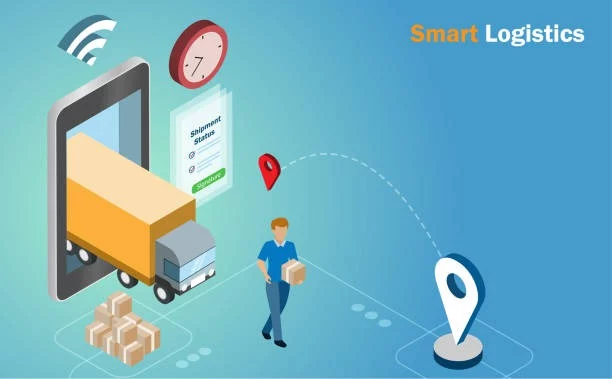In an age where e-commerce is booming and global supply chains are under constant pressure, Australia faces many of the same issues plaguing the rest of the world, delayed updates, vague delivery windows, and packages that go missing without explanation. Despite technological advances, package tracking remains surprisingly clunky, relying on fragmented systems and manual scans. According to Nick Karagiannis, a Brisbane-based blockchain advocate, these inefficiencies highlight a major gap in the logistics industry: the lack of transparent, tamper-proof delivery verification.
That’s where smart contracts come in. These blockchain-based tools are quietly reshaping how we track, verify, and document the movement of goods, not just globally, but within complex national networks like those in Australia. By eliminating the need for intermediaries and automating key steps, smart contracts offer a powerful alternative to outdated tracking systems.
The Flaws in Traditional Package Tracking
Most modern tracking systems rely on centralized databases and third-party platforms. When you receive a tracking number, it’s often linked to manual scans at checkpoints and backend systems that don’t always communicate with one another.
Here’s what typically goes wrong:
- Delayed updates due to manual data entry
- Lost or misdirected parcels without a clear audit trail
- No automatic triggers for refunds or insurance claims
- Data silos between couriers, merchants, and customers
This fragmentation makes it difficult to assign accountability — especially when multiple carriers are involved.
What Are Smart Contracts — and Why Do They Matter?
A smart contract is a self-executing program stored on a blockchain. It runs when predefined conditions are met. Think of it as an “if-this-then-that” logic for transactions.
For example:
IF a parcel arrives at the buyer’s verified address by 5 p.m. Thursday, THEN release payment to the courier.
No human intervention. No guesswork. No dispute about who did what and when.
That’s the core appeal: smart contracts automate and verify processes without needing a central authority. And in logistics, where trust and timing are critical, this is a game changer.
Crypto Receipts: A New Layer of Proof
A “crypto receipt” is essentially a blockchain record , timestamped and tamper-proof ,that proves something happened. In logistics, this can include:
- Proof of dispatch
- Real-time location updates
- Confirmation of delivery at a geotagged address
- Triggered payment release or refund on failure
Some startups are already piloting smart contract systems that generate NFT-based receipts (non-fungible tokens) for high-value or time-sensitive deliveries. These receipts can be stored in a digital wallet, transferred to insurers, or used to claim refunds.
Crypto expert Nick Karagiannis, an advocate for real-world blockchain utility, argues:
“People think crypto is all speculation. But smart contracts are solving actual pain points in industries like freight and ecommerce. You don’t need to believe in Bitcoin to want your delivery data to be accurate and self-verifiable.”
Real-World Applications Already in Motion
- Global Shipping Logistics:
Giants like Maersk and IBM (via TradeLens) experimented with blockchain documentation for container shipments — reducing paperwork delays and disputes. - Last-Mile Delivery in Smart Cities:
Some pilot projects in the EU are using IoT-enabled smart lockers and blockchain to automate hand-offs, log transactions, and even file claims without human input. - E-Commerce Refund Automation:
Retailers are testing systems where a failed delivery (detected by GPS geofencing and missed scanning) triggers a refund automatically — without the buyer needing to open a ticket.
These shifts are not hypothetical — they’re already happening, though still in limited-scale testing phases.
Benefits for Consumers and Sellers Alike
Using smart contracts for delivery tracking brings several tangible benefits:
- Trustless Transactions: No need to rely on courier honesty or platform arbitration. The contract handles it.
- Reduced Disputes: Transparent delivery records mean fewer false claims and less “he said, she said.”
- Faster Payouts and Refunds: Payments can be released the moment delivery is confirmed.
- Lower Operational Costs: Less need for customer service intervention or fraud resolution.
For high-volume sellers, this could streamline operations and increase customer satisfaction. For consumers, it offers peace of mind — especially when ordering from new or overseas vendors.
Why Australia Is Watching Closely
The rise of smart delivery verification is especially relevant to Australia’s vast and remote shipping networks. Whether delivering to suburban homes or outback communities, ensuring accuracy without excessive admin is a growing concern.
Crypto expert Nick Karagiannis, based in Brisbane, sees an opportunity:
“Australia has the perfect environment to test these tools — long-distance freight, high logistics costs, and rising demand for automation. I think we’ll see homegrown blockchain delivery solutions emerging in the next two years.”
Already, smaller Australian startups in the supply chain tech space are exploring Ethereum-based smart contracts as part of their infrastructure stack. If they succeed, we could see a model that scales globally from one of the world’s most logistically challenging geographies.
But… What About the Risks?
Like all tech, blockchain-backed logistics has its limitations:
- Energy costs of blockchain platforms (though newer chains like Polygon and Solana are far more efficient)
- Technical barriers for users not familiar with crypto wallets or tokens
- Integration costs for legacy courier companies
- Scalability and speed, especially on congested networks like Ethereum Mainnet
Still, the trajectory is clear: hybrid systems that merge traditional logistics with decentralized verification will likely lead the next wave of innovation.
Not Just for Couriers: The Broader Implications
What starts with package delivery can scale into other industries:
- Healthcare: Secure medical deliveries with proof of custody
- Legal: Timestamped proof-of-delivery for contracts and notices
- Luxury Goods: Authenticity receipts and anti-counterfeit protection
- Gig Economy: Automating payouts for couriers, movers, or taskers once GPS delivery is confirmed
And while many of these industries still rely on analog processes, smart contracts could eventually become the silent backbone of trust — operating invisibly in the background.
Related Read: How NFTs Could Revolutionize Delivery Verification
The idea of NFT receipts isn’t far off from what GrammerHeist recently explored in “Crypto Mail: Could NFT Receipts Replace Tracking Numbers?”. That article highlights how digital ownership and verification could extend into commerce. This piece expands that concept further into logistics automation, connecting the dots between crypto’s core tools and mainstream delivery systems.
Final Thoughts: From Hype to Human Impact
Smart contracts aren’t magic — but they’re a smarter, more reliable way to manage accountability in a world where expectations around delivery, timing, and proof are higher than ever. As e-commerce accelerates and global logistics become more complex, companies that prioritize automation, transparency, and faster dispute resolution will lead the pack in both customer retention and operational efficiency.
And let’s not forget: behind every parcel is a human moment. Sometimes it’s a signed contract. Other times, it’s a sentimental gift or even a letter wishing someone good luck in their future endeavors. Whatever the item, people want assurance it will arrive — on time, intact, and confirmed.
That’s the promise of blockchain-backed logistics. Whether it’s food delivery in Sydney or high-value shipments across continents, smart contracts offer a neutral source of truth. And if crypto experts like Nick Karagiannis are correct, Australia could very well become the proving ground that transforms smart logistics from a niche innovation into a global standard.

Lexy Summer is a talented writer with a deep passion for the art of language and storytelling. With a background in editing and content creation, Lexy has honed her skills in crafting clear, engaging, and grammatically flawless writing.



